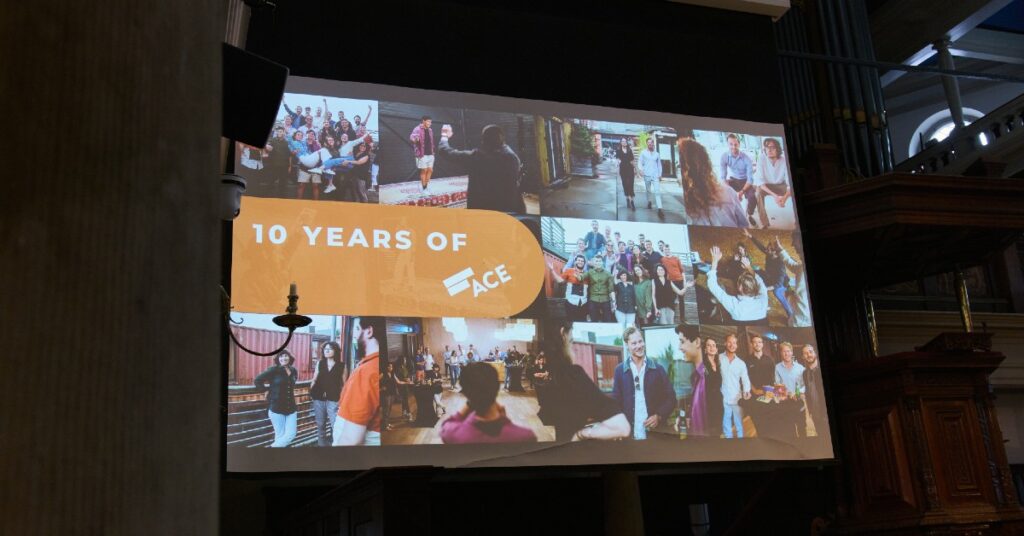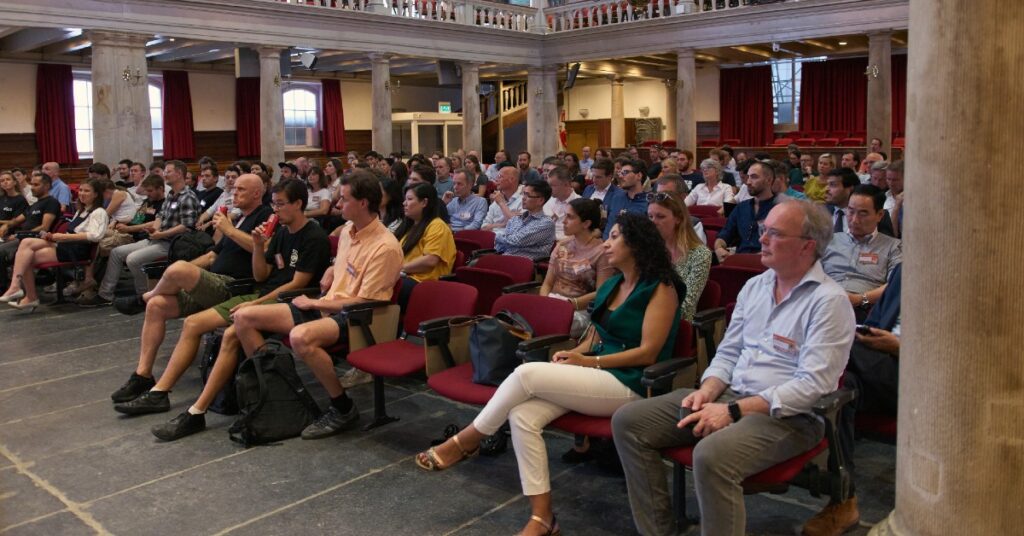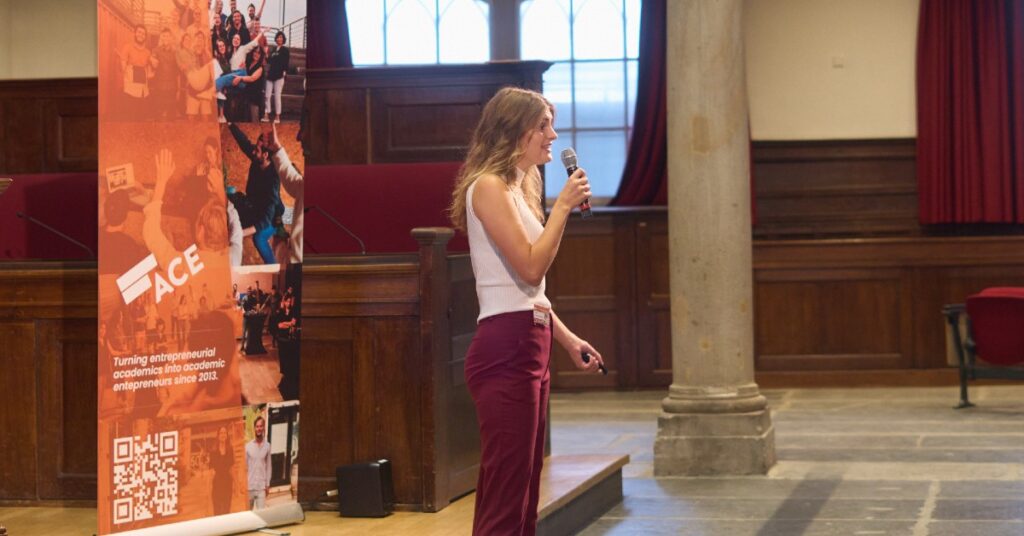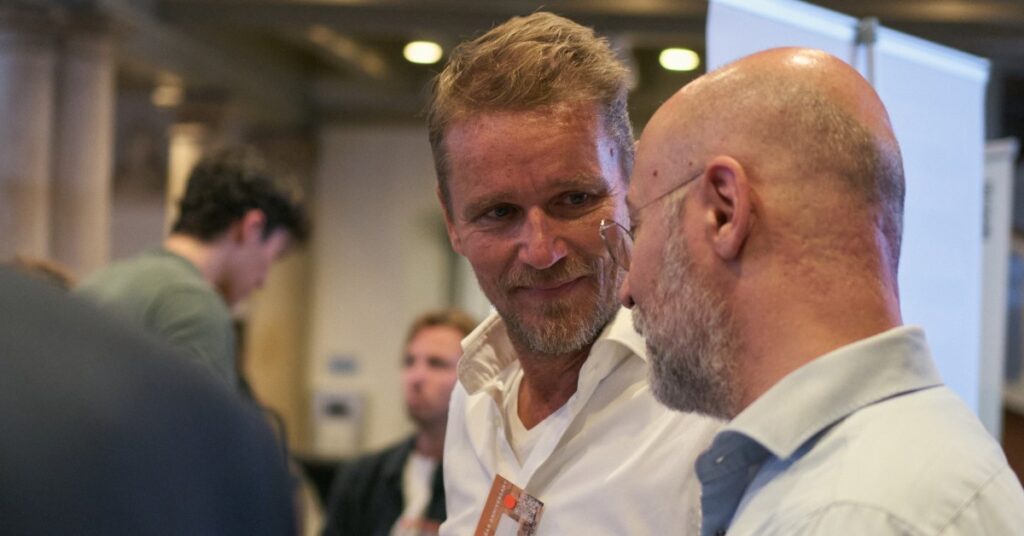On June 20, the Amsterdam Center for Entrepreneurship (ACE) marked the tenth anniversary of its incubator programme.
At the outset, ten years may not seem like a long time but in the world of startups, it can be the difference between the age of Mollie and LUMICKS.
It thus warrants that we not look at these 10 years in abstract terms but look at the impact that one organisation can have in these short years.
In the case of ACE Incubator, that impact speaks volume of its influence in the Dutch tech ecosystem.
Since its founding in 2013, ACE Incubator has incubated 200 startups and Oscar Kneppers, who joined the entrepreneurial incubator as director in February, says 33 per cent of them are still active.
Fostering academic knowledge

Some of the brightest startup ideas have often taken birth in classrooms and academics but not every idea turns into a business.
The fact that even today we use Facebook as an example for a startup founded in university shows how the scale has failed to match the influence of Meta, the parent company of Facebook.
This gap in the transfer of knowledge from academia to society forms the basis of ACE Incubator‘s existence.
“At the founding days of ACE, the mission has always been to bring academic knowledge to society,” says Kneppers.
ACE first began its journey as a minor within University of Amsterdam’s Amsterdam Business School before being spun out into ACE Ventures Lab under the leadership of Mirjam van Praag and Erik Boer.
Today, it is renowned as ACE Incubator and acts as the university business incubator in Amsterdam powered by University of Amsterdam (UvA), Vrije Universiteit Amsterdam (VU), Hogeschool van Amsterdam (HvA), and University Medical Center (UMC).
It supports students, researchers, and academics looking for ways to turn their tech or science based business into impactful companies of the future.
“Our support consists of training & coaching and introductions to our extensive network of industry leaders, business professionals, investors and service providers,” ACE Incubator says on its website.
Building impactful startups
At ACE Incubator, the mission of its leadership team is to support knowledge-based startups and scaleups.
It also offers a learning ground for high-growth ventures of the future and it reflects from its first exit to the newest alumni.
In 2017, Qualcomm acquired Scyfer, a Dutch startup developing AI and machine learning (ML) technologies for a number of industry vertical applications.
The Scyfer team joined the ACE Incubation programme in 2013 and remains one of the “proudest moments so far.”
Kneppers adds, “We want to create impactful companies of the future that offer solutions to the world’s biggest societal challenges.”

Amsterdam-based LUMICKS is another good example of ACE alumni creating impact with a solution aimed to solve societal challenges.
The startup offers diagnostic tools for cancer research and immunotherapy based on the principle of optical tweezers and super-resolution microscopy.
If LUMICKS is advancing the study of cancer at the single-molecule and single-cell levels, then ACE alumni Lalaland is using AI to create models for fashion brands, that allows these brands to showcase their collections for any size and skin tone.
It should not come as a surprise then when Kneppers calls ACE’s biggest contribution to the Dutch tech ecosystem as “fostering a space for entrepreneurial academics into becoming academic entrepreneurs.”
Driving an AI wave

At the time of writing, all ACE incubated startups had raised over €159M and the total revenue generated by these startups is €69.8M. They also directly employ 685 people.
ACE Incubator is not only in touch with the majority of operative startups in its portfolio but also offers active support until up to two years after joining the incubation programme.
However, its biggest impact could come in the next decade as every company adopts AI and societies brace themselves for profound changes.
A lot of AI ideas are coming from academia and are being built by students. Amsterdam is no stranger to this trend and being enmeshed in Amsterdam’s education ecosystem makes ACE uniquely positioned to drive the change.
Kneppers says, “In both quantum and AI, Amsterdam is well positioned on the global stage, having nurtured some of the most exciting startups in the field as well as a good reputation in delivering high quality talent to the world stage.”
As an incubator that is focussed on tech or science-based business ideas, ACE seems well positioned to support many academics with an AI background looking to set up their own companies.
To show its intent to support AI-fuelled startups, ACE launched AI Lab in 2019 as a platform that connected students with an AI background to companies working on an AI-based challenge over the course of 12 weeks.
It’s a shame that this initiative, which counted names such as OLVG, Spaarnelabs, uniQure, KraftHeinz, and ABN AMRO as partners, is currently on hold and Kneppers says they will “continue to support academics in this domain in our core programs.”
Third startup wave

Kneppers, a renowned publisher and serial entrepreneur who co-founded Rockstart in 2011, says we are about to enter the third wave of startups.
He adds that the first wave was from 1994 to 2001, which can be dubbed as the period when Yahoo launched and the dotcom crash killed a number of internet companies.
The second startup wave, according to Kneppers, was from 2012 to 2020 and he says the third wave will be all about “academic enterprises solving real world problems with the brightest minds and the best knowledge available.”
He does not hesitate from acknowledging that the biggest challenge for ACE has been to stay aligned and united with all the entrepreneurial initiatives that sprung out in the academic space in the past decade.
With more startups likely to sprung out as we see a transition to startups dominated by tech and science, ACE Incubator needs to tackle this with the pan-Amsterdam community.
As an incubator representing five leading academic institutions of the Netherlands, the next decade of ACE will not only define its future but the future of the Dutch tech ecosystem.
“With our current programmes, we encourage an entrepreneurial mind- and skill set amongst academics to make sure academic knowledge reaches society,” Kneppers says with clear conviction on how to succeed in the future.
Here are the key milestones achieved by ACE during its decade-long journey:
2013
ACE Incubator was founded by Erik Boer and Peter Krijnsen as ACE Ventures Lab
2014-2015
Backs Scyfer, LUMICKS, Nicolab, and others with pre-seed funding
2016
ACE moves from its old office to Startup Village, a community working space designed in collaboration with UvA Ventures Holding and Amsterdam Science Park
2017
First exit with the acquisition of Scyfer by Qualcomm
2018
Emerce announces ACE as the #1 incubator and completes incubation of over 100 startups
2019
Launches AI Lab to connect students to AI-fuelled companies
2020
ACE alumni Lalaland bags funding from Amsterdam-based student VC ASIF Ventures
2021
ABN AMRO joins forces with ACE’s AI Startup Lab
2023
Appoints Oscar Kneppers as new director of ACE
Read the orginal article: https://siliconcanals.com/news/startups/ace-incubator-turns-10/


